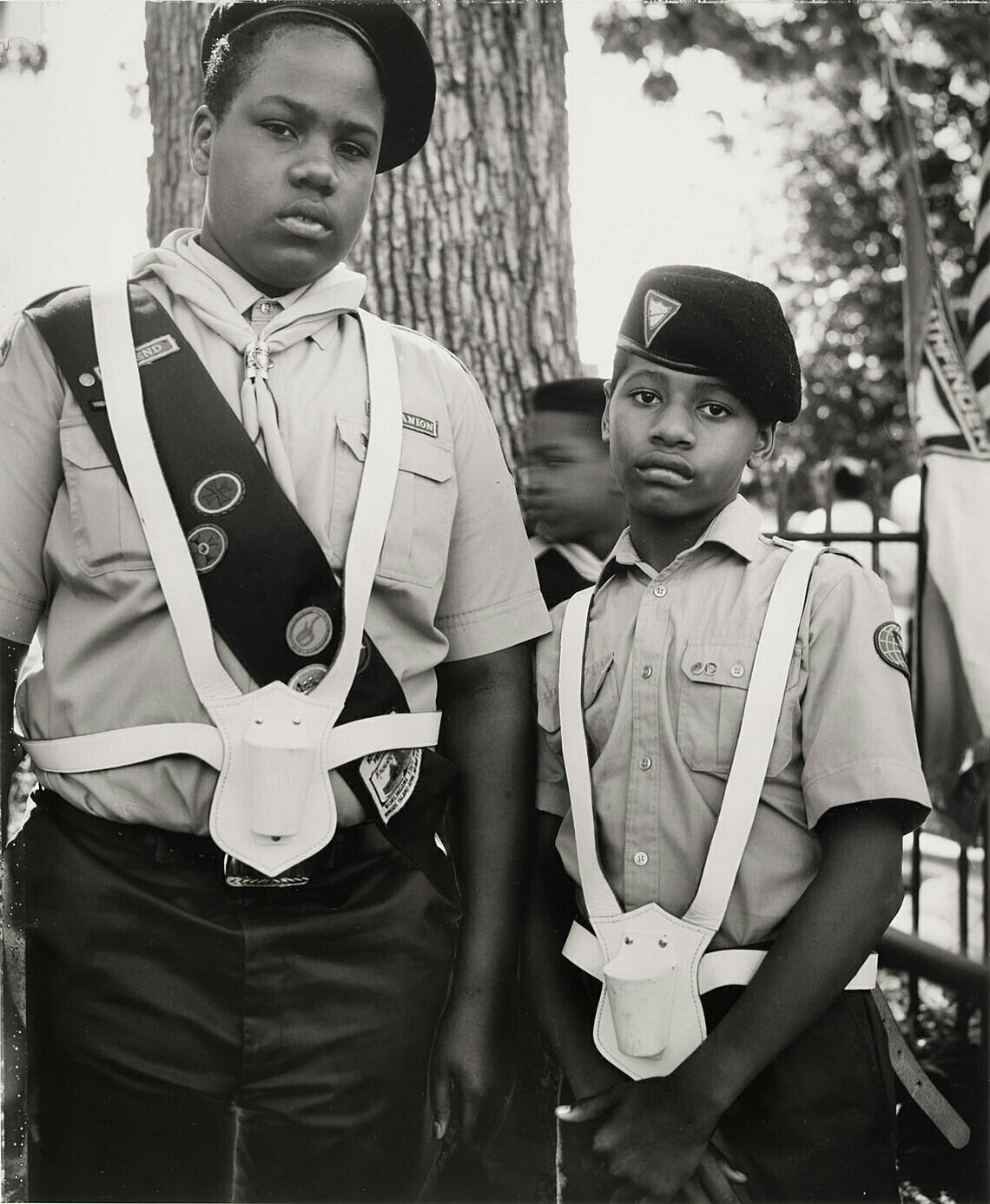Narrator: This black painting, which has been slashed repeatedly in the center, is a self-portrait from Ligon’s series of works about James Baldwin’s "Stranger in the Village" essay. As Curator Scott Rothkopf explains, it was made from a failed painting:
Scott Rothkopf: It was something that he was struggling with, wasn't happy with, and so he scraped the language off this picture. And it's very violent, in a way. You see the scratches. You see the traces of letters. You have a sense of something that has been effaced, something that has been violated.
The fact that he chose to call this painting Self-Portrait then becomes a very interesting thing to think about. Why is this surface that has been rubbed off something that he chooses to think of as a representation of himself? And I think that this gets at his very deep and intense relationship to the writing of James Baldwin. Certainly Baldwin was a black, gay man who, like Glenn, grew up in New York City. . . .But the idea that this is a self-portrait, I think, relates . . . to his . . . also needing to maybe push beyond that. . . .
Maybe he's effacing himself or he's effacing this author with which he's had extreme identification. Or maybe he's doing both at the same time. And that kind of blankness that overwhelms this painting is a very beautiful and I think moving idea of a self-portrait, but one that’s also kind of haunting.


